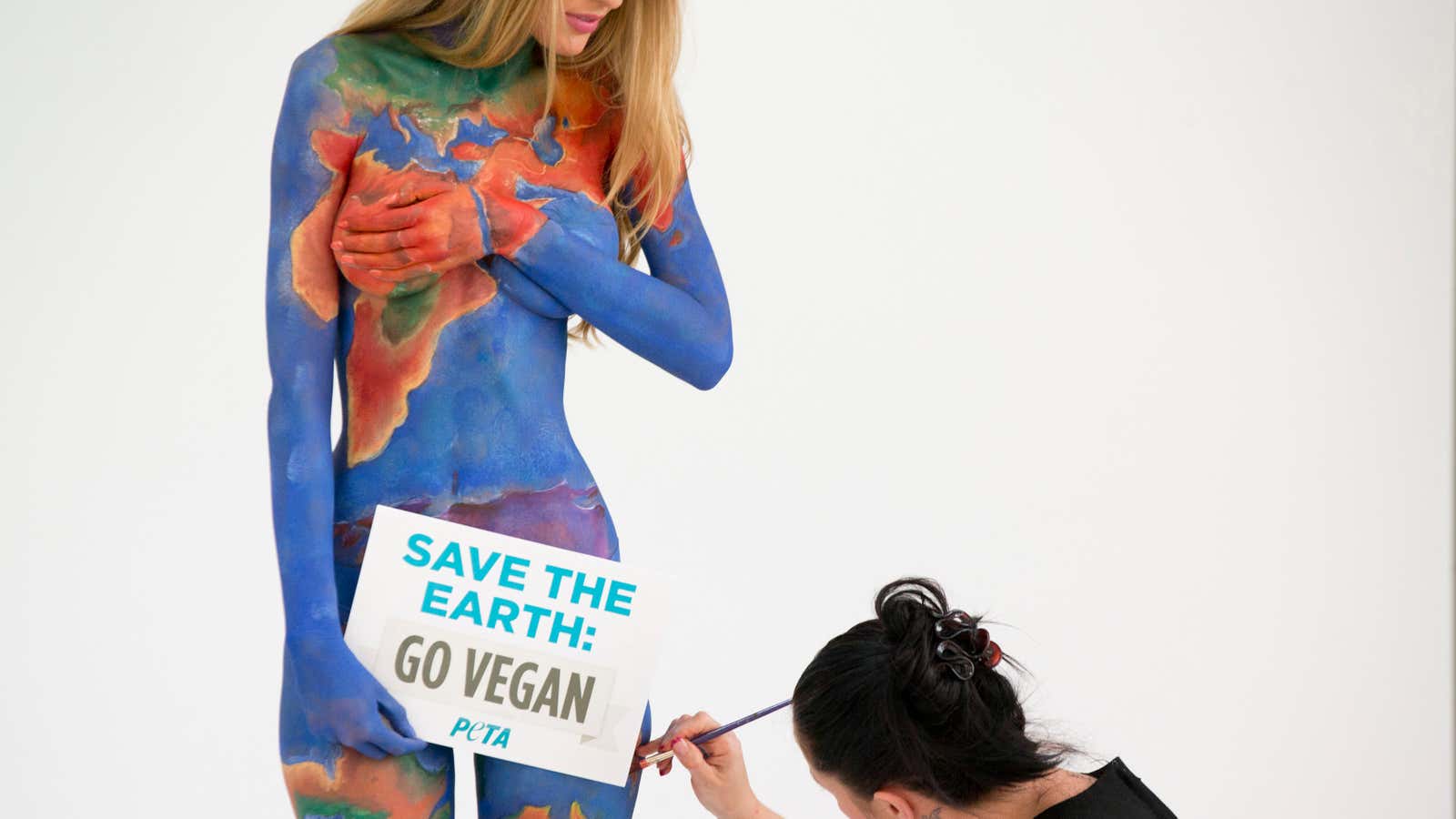Climate change is a gendered crisis. The decisions to pump too much carbon in to the atmosphere, while knowing the risks of doing so, were mostly made by men. What’s worse is that those decisions end up hurting women more than men.
Sadly, even if men understand this, they are doing nothing to help. Past research has shown that, across ages and countries, men have a bigger carbon footprint and feel less guilty about environmentally unfriendly choices than women.
Gender inequality may be receding, but a new study suggests that if we want to avoid a climate catastrophe, we still need to indulge men’s prejudices to encourage them to make more environmentally friendly choices.
It’s a man’s world
Scientists have known for decades that women are more environmentally friendly than men. Women are more social, more altruistic, more empathetic, and more ethical. All these behaviors are linked to environmentalism.
Aaron Brough of Utah State University and his colleagues sought to test why such significant differences in behavior exist. They thought that men might associate going green with femininity, and thus choose to be more wasteful as a sign of manliness. To test this theory, they conducted a series of seven experiments.
1️⃣ The first test featured 127 college students, who were each shown a person’s name followed by a photo of a product and then asked whether the product was environmentally friendly or not. Reaction times were used to judge whether students linked green products to femininity, with faster responses suggesting stronger convictions. The results showed that most students, both men and women, indeed made a link between women and environmentally friendly products.
2️⃣ With this link established, the second study sought to establish whether people who buy green products are perceived as more feminine. They divided a group of 194 college students randomly into four groups. Each received one of four possible combinations from the following scene:
“Imagine you are at your local grocery store and see a [man/woman] leaving the checkout lane, carrying [his/her] groceries in a [plastic bag/reusable canvas bag].”
Then, based on the specific scene they received, they were tested using simple word-associations whether the choice of a green bag was seen as more feminine or not. Again, the results showed that both men and women thought the person’s choice of the greener option, the reusable canvas bag, was more feminine.
3️⃣ So, it seems that we think people who make green choices are more feminine. Do we think the same about ourselves? The researchers split 130 people into two groups. Each was asked “to recall and write about a time in which they performed an action that was good or bad” for the environment. Then, they were asked to indicate how masculine or feminine they felt. The results showed that the green-feminine association we apply to others also holds true for ourselves.
4️⃣ Next, the researchers gave 403 men in the US a greeting card. Each card had either a gendered message (“Happy b’day” written in frilly font) or an age-specific one (“You’re HOW old?”). The men were then asked to choose one of three products: a lamp, a backpack, or batteries. Each of the products had environmentally friendly options. The men were more likely to prefer non-green options, in general, but those who got the card with the gendered message were more likely to do so.
After these four tests, the researchers wanted to see if affirming men’s masculinity would make them more comfortable expressing a preference for environmentally friendly products.
5️⃣ The researchers asked 472 people to write about their previous day and were told that a highly sophisticated algorithm would analyze their personality traits based on the text. Half were, at random, told that they had feminine traits and half were told they had masculine traits.
Then, they were asked to read product descriptions, which included green words (“better for the environment”) and non-green words (“better at dissolving grease”). They were asked whether they would try the product. Turns out, if men’s masculinity was affirmed, they were more likely to make a green choice. The same preference wasn’t seen in women.
6️⃣ The researchers created logos and branding for non-profit organizations. Men felt more comfortable donating to environmental charities if they had more masculine branding and logos (Wilderness Rangers, in a big bold blue font) rather than than more feminine ones (Friends of the Earth, in a frilly green font). Women showed no such preferences.
7️⃣ At a hypothetical car dealership, men were more likely to chose a model with ”protection” features instead of ”eco-friendly” ones, even when the features in each model were identical. Again, women din’t show a preference for one model or the other based on the branding of the car.
Although there are limitations to these experiments—relatively small sample sizes, mostly in America—they consistently showed that both men and women link environmental friendliness with femininity. They also show that, if you indulge men in their manliness (Coke Zero vs Diet Coke), you can nudge them to make greener choices.
After decades of progress on gender equality, this might feel like a step backwards. But it’s easier to alter product slogans and brand positioning than it is to deal with the disasters that climate change threatens to unleash.
